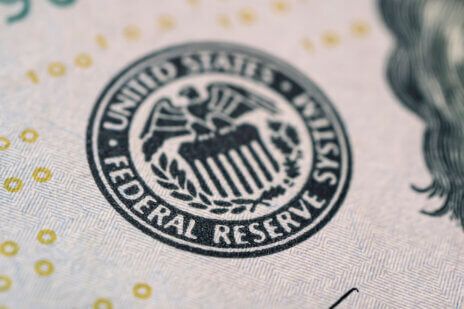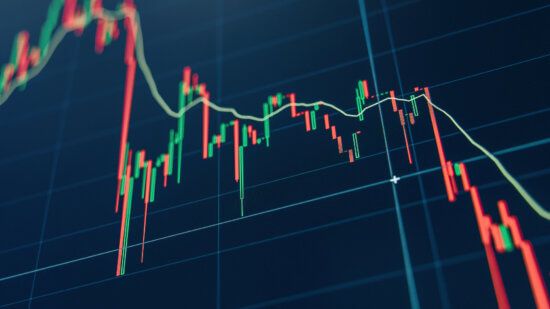FOR THORNBURG, TRUE INSIGHT IS DIFFERENT
Thornburg’s unique perspective reflects its ongoing observation of global market dynamics and decades of experience advancing investor outcomes.
Please select your location and the type of investor you are so we can share the most relevant information with you.
For Institutional / Wholesale / Professional Clients
The content on this website is intended for institutional and professional investors in the United States only and is not suitable for individual investors or non-U.S. entities. Institutional and professional investors include pension funds, investment companies registered under the Investment Company Act of 1940, financial intermediaries, consultants, endowments and foundations, and investment advisors registered under the Investment Advisors Act of 1940.
TERMS AND CONDITIONS OF USE
Please read the information below. By accessing this web site of Thornburg Investment Management, Inc. ("Thornburg" or "we"), you acknowledge that you understand and accept the following terms and conditions of use.
Disclaimers
Products or services mentioned on this site are subject to legal and regulatory requirements in applicable jurisdictions and may not be licensed or available in all jurisdictions and there may be restrictions or limitations to whom this information may be made available. Unless otherwise indicated, no regulator or government authority has reviewed the information or the merits of the products and services referenced herein. Past performance is not a reliable indicator of future performance. Investments carry risks, including possible loss of principal.
Reference to a fund or security anywhere on this website is not a recommendation to buy, sell or hold that or any other security. The information is not a complete analysis of every material fact concerning any market, industry, or investment, nor is it intended to predict the performance of any investment or market.
All opinions and estimates included on this website constitute judgements of Thornburg as at the date of this website and are subject to change without notice.
All information and contents of this website are furnished "as is." Data has been obtained from sources considered reliable, but Thornburg makes no representation as to the completeness or accuracy of such information and has no obligation to provide updates or changes. Thornburg disclaims, to the fullest extent of the law, any implied or express warranty of any kind, including without limitation the implied warranties of merchantability, fitness for a particular purpose and non-infringement.
If you live in a state that does not allow disclaimers of implied warranties, our disclaimer may not apply to you.
Although Thornburg intends the information contained in this website to be accurate and reliable, errors sometimes occur. Thornburg does not warrant that the information to be free of errors, that the functions contained in the site will be uninterrupted, that defects will be corrected or that the site and servers are free from viruses or other harmful components. You agree that you are responsible for the means you use to access this website and understand that your hardware, software, the Internet, your Internet service provider, and other third parties involved in connecting you to our website may not perform as intended or desired. We also disclaim responsibility for damages third parties may cause to you through the use of this website, whether intentional or unintentional. For example, you understand that hackers could breach our security procedures, and that we will not be responsible for any related damages.
Thornburg Investment Management, Inc. is regulated by the U.S. Securities and Exchange under U.S. laws which may differ materially from laws in other jurisdictions.
Online Privacy and Cookie Policy
Please review our Online Privacy and Cookie Policy, which is hereby incorporated by reference as part of these terms and conditions.
Third Party Content
Certain website's content has been obtained from sources that Thornburg believes to be reliable as of the date presented but Thornburg cannot guarantee the accuracy, timeliness, completeness, or suitability for use of such content. The content does not take into account individual investor's circumstances, objectives or needs. The content is not intended as an offer or solicitation with respect to the purchase or sale of any security or other financial instrument or any investment management services, nor does it constitute investment advice and should not be used as the basis for any investment decision.
Suitability
No determination has been made regarding the suitability of any securities, financial instruments or strategies for any investor. The website's content is provided on the basis and subject to the explanations, caveats and warnings set out in this notice and elsewhere herein. The website's content does not purport to provide any legal, tax or accounting advice. Any discussion of risk management is intended to describe Thornburg's efforts to monitor and manage risk but does not imply low risk.
Limited License and Restrictions on Use
Except as otherwise stated in these terms of use or as expressly authorized by Thornburg in writing, you may not:
Severability, Governing Law
Failure by Thornburg to enforce any provision(s) of these terms and conditions shall not be construed as a waiver of any provision or right. This website is controlled and operated by Thornburg from its offices in Santa Fe, New Mexico. The laws of the State of New Mexico govern these terms and conditions. If you take legal action relating to these terms and conditions, you agree to file such action only in state or federal court in New Mexico and you consent and submit to the personal jurisdiction of those courts for the purposes of litigating any such action.
Termination
You acknowledge and agree that Thornburg may restrict, suspend or terminate these terms and conditions or your access to, and use, of the all or any part this website, including any links to third-party sites, at any time, with or without cause, including but not limited to any breach of these terms and conditions, in Thornburg's absolute discretion and without prior notice or liability.
Please read through all of the Terms and Conditions of Use above to continue.
Already have a Thornburg.com account? Log In

Thornburg’s unique perspective reflects its ongoing observation of global market dynamics and decades of experience advancing investor outcomes.





